Normally, this Electronic Inspirations section features a specific album by a specific band and it had been my intention to write something about The Mix by Kraftwerk, but BBC Four's recent, mainly dreadful Pop Art show prompted me to change my usual approach. Instead of that programme being a glorious history of arguably the most influential band of all time, it was instead a Paul Morley narrated half arsed history with the occasional chink of light (Pocket Calculator live from 1981, Francois Kervorkian's undiluted love for the band) and was ultimately hugely disappointing. I'm not going to pretend that this piece will be anything like the definitive history of Kraftwerk of course. Instead, it's a look back at the band's musical history with some of my own, no doubt questionable views thrown in. As electronic inspirations go, only electricity itself has influenced electronic more than Ralf and co.
BEFORE MEN WERE MACHINES - THE EARLY YEARS
It's easy to skip over pre-Autobahn Kraftwerk, partly because many people simply don't know about that era and partly because any electronic music articles tend to start at Autobahn and work from there. Kraftwerk's formative years are important though, as the experimentation they group displayed then lead to the electronic experiments they became famous for. Florian Schneider and Ralf Hutter had met as students and had played in a group called Organisation whose only release was Tone Float (RCA 1969), which was produced like all good German albums of the time by Conny Plank and was a sprawling mix of prog like tracks. It's by no means essential listening, but there are some nice moments in tracks like Tone Float and Rhythm Salad. Ralf and Florian soon left Organisation and formed Kraftwerk.
It wasn't the classic line up at this stage and a number of musicians were involved including, rather wonderfully, Michael Rother and Klaus Dinger who went on to form Neu! a band that deserves a blog of its own as they are quite marvellous. Florian remained the only constant member of the band at this stage as even Ralf took time out when he returned to University. Two albums of more prog like jams were released in 1970 and 1972 as Kraftwerk and Kraftwerk 2. From the first album, it's certainly worth checking out Ruckzuck and Megaherz. They're fairly unrecognisable from Kraftwerk today but they do contain hints of what the band would become. Here's Ruckzuck live on West German in 1970 in front of an audience of German hipsters of the time. Some of them even seem to be enjoying it.
It wasn't the classic line up at this stage and a number of musicians were involved including, rather wonderfully, Michael Rother and Klaus Dinger who went on to form Neu! a band that deserves a blog of its own as they are quite marvellous. Florian remained the only constant member of the band at this stage as even Ralf took time out when he returned to University. Two albums of more prog like jams were released in 1970 and 1972 as Kraftwerk and Kraftwerk 2. From the first album, it's certainly worth checking out Ruckzuck and Megaherz. They're fairly unrecognisable from Kraftwerk today but they do contain hints of what the band would become. Here's Ruckzuck live on West German in 1970 in front of an audience of German hipsters of the time. Some of them even seem to be enjoying it.
Kraftwerk 2 is the better of these two albums. The artwork shows that Kraftwerk were always conscious of how their image came across, as it mirrors Kraftwerk 1's road cone art, differentiating itself by having a green rather than a red cone.
This album was also written entirely by Ralf and Florian and features some great tracks such as Klingklang (so good they named a studio after it) and Harmonika. There are electronic percussive effects galore throughout the album and many "real" sounds are treated and manipulated. Here's Klingklang:
1973's Ralf and Florian followed Kraftwerk2 and contains far more electronics again, with synthesizers and, notably, the vocoder playing a key role. The album contains six tracks similar in sound to the b-side tracks from Autobahn, with Elektrisches Roulette and Ananas Symphonie my personal faves. Wolfgang Flur and his knitting needles playing tin foil drum machine had joined by this stage, moving the band closer to their best known incarnation.
Here's the band on groovy West German tv show Aspekte from the time, with Ralf still looking like a young Michael Stipe and Florian like an accountant who's walked into the wrong room
So far so good but not that outstanding. Things were shortly about to change.
AUTOBAHN
What is there to say that hasn't already been said about 1974's Autobahn? It's the album that made people notice Kraftwerk, the album that is essentially responsible for anything produced thereafter with a synthesizer on it, an edit of the title track rather bizarrely gave Kraftwerk a hit on both sides of the Atlantic and so on and so on. It's so much more than the title track alone however. Certainly, Autobahn the song is an outstanding piece of work that is a think of such unspeakable genius that my words alone would never do it justice. If you haven't heard it already (and if that is the case what on earth are you doing reading this?) remedy that instantly. It invents at least four genres of electronic music over its 22 minutes 47 seconds and if you don't immediately burst into tears with joy at the sheer beauty of Ralf's "Jetzt schalten wir ja das Radio an/Auf dem Lautsprecher klingt es dan" immediately followed by the radio singing (singing! Ok it's a vocoder) "Wir fah'rn auf der Autobahn" at 14 minutes 13 seconds in then your soul has been removed. It is utterly impossible to overstate the importance of this song.
The title track aside, however, there are four other tracks on the album which all feature on the b-side. The stand out is Kometenmelodie 2 which is a jaunty electro pop masterpiece but the other tracks (Kometenmelodie 1, Mitternacht and Morgenspaziergang) are all certainly worth hearing too. They are fairly experimental in places and even use real instruments but they all work. Autobahn is the first properly complete Kraftwerk album and you shouldn't just listen to the title track alone.
RADIOACTIVITY
Radioactivity (1975) is my favourite Kraftwerk album. It's the first one to feature the classic Ralf Hutter/Florian Schneider/Karl Bartos/Wolfgang Flur and was the first that was solely produced by Ralf and Florian. It was also the first to be recorded at the band's own studios, Kling Klang. The album sounds like it has been beamed in from another planet and time and is, I think, wholly electronic. Thematically, it focuses on nuclear power, radioactivity and radios, with the band seemingly caught between deciding which one of the two radio themes to lead with. Opener, Geiger Counter is just what you'd expect it to be and it leads into the title track, Radioactivity. This song never fails to amaze me. I remember listening to it at school just after The Mix was released and being amazed at the difference in mood between the original version and its remixed cousin. It's a beautiful track underpinned by a choral effect that surely wasn't possible in 1975? Breathtaking.
The whole album contains such moments, from Radioland's mournful but gorgeous evocation of a golden age of radio, to The Voice Of Energy's terrifying electrical transmitter barking at you in a scary robot voice. Closing track, the puntastic Ohm Sweet Ohm is marvellous. It starts off with the vocoder singing the title and builds through what sound like the kind of pre set rhythm tracks you'd get on keyboards in the 1980's to a closing electro pop finale. As I mentioned above, the whole album sounds like it was created on another planet and is so far ahead of its time that you can't quite believe what you're hearing. After Autobahn's success and given the three albums that were to come, Radioactivity is often, wrongly overlooked, other than getting mentioned as the album that David Bowie became obsessed with, leading to the likes of Low and Heroes. For me, it's the first Kraftwerk mission statement and the first evidence that Kraftwerk were doing something that no other band had even contemplated.
TRANS EUROPE EXPRESS
It's hard not to lapse into clichés when talking about Trans Europe Express. Its influence is well known, from the Human League to Afrika Bambaataa, and it's the first of a run of three albums that are recognised as the bedrocks of electronic music. Oddly, whilst I adore much of it, I find tracks like Showroom Dummies and The Hall Of Mirrors seem a bit out of place given the album's theme of travel. Opener Europe Endless is simply beautiful, a 9 minute 40 second track that immediately seats you on the train sung of in the title track and zooms you through the European countryside. The part where Ralf sings "Life is timeless" to which the vocoder responds "Europe Endless" is so heartbreakingly lovely that it never fails to give me the shivers. The two tracks I mentioned above follow, before we board Trans Europe Express and set off on a remarkable musical journey.
There is nothing about the song that isn't perfect. It chugs along like an actual train and sings of Vienna, Dusseldorf and, superbly, meeting Iggy Pop and David Bowie. It's honestly incredible. As the song ends it mutates into Metal On Metal where Kraftwerk decide to invent industrial music given that Trans Europe Express had already invented every other genre. Franz Schubert follows, using the arpeggiated part from Europe Endless as its base, before we end on Endless Endless, a simple vocodered piece that rounds everything off wonderfully. Another thing to note is the artwork (German cover below) which is brilliant. Look at them - 4 blokes in suits who are responsible for everything that is good in music.
As I said at the outset, it's all too obvious how influential this album is, but it is one that is still worth revisiting. For something recorded in 1977, you hear the sound of modern music all over it.
THE MAN MACHINE
For 1978's masterpiece, the band further developed the notion of machines taking over the world by becoming machines themselves. The Man Machine is an immaculate album that is probably the defining Kraftwerk piece. Everything, from the stunning artwork to the minimal precise electronics throughout the album, is perfect. It really is an astonishing album that deserves repeated listens. The synth class of 77-82 from Vince Clarke to Martin Gore to Steve Strange to Soft Cell and beyond were listening and taking notes. It kicks off with The Robots, a 6 minute plus masterclass in electronic music. Despite it being a song about actually being a robot, the song is far from a detached, icy futurist piece. As with all Kraftwerk's takes on technology, travel and radios/radioactivity, there is a real beauty to be found within the song.
COMPUTER WORLD
It could be said that Computer World (1981) is Kraftwerk's most influential album. It certainly is in a three way tussle with Trans Europe Express and The Man Machine in terms of influence on specific genres and artists. With this album, Kraftwerk essentially invented the internet, so thanks to them you're reading this.
Spacelab follows and it's rhythms and beats are frankly astounding. The more threatening sounding, but still beautifully melodic, Metropolis is next before we reach the Kraftwerk go pop sounds of The Model. Now, you all know this track and it's as good an example of electropop as you'll find anywhere else, but too many people still think this is the only thing Kraftwerk have ever done and that's something that needs sorted out! Part of this may be due to the track's success in 1982 when it became a UK number one for the band having initially appeared as the b-side to Computer World. Anyway, The Model is obviously a great track but it's a little incongruous on The Man Machine.
The album's final two tracks are works of ten out of ten, 100%, unquestionable supreme majesty. Neon Lights is one of the most beautiful electronic music tracks that there has ever been. It lasts over 9 minutes but even that seems too short. A remarkable track. By the way, NEVER listen to Simple Minds cover of it - your ears will never recover. The song was released as a single and came on a luminous vinyl 12" which I have and believe me its a great thing (see below). The album ends on the title track which could well be the most robotically precise piece of music ever. It's slightly spooky ("The Man Machine/Semi Human Being") but by this point Ralf and co actually considered themselves to be machines so fair enough. The track opened the show at the only Kraftwerk gig I've seen (Glasgow 2004) and I have no shame in saying that I had tears in my eyes. Wonderful, wonderful, wonderful.
It could be said that Computer World (1981) is Kraftwerk's most influential album. It certainly is in a three way tussle with Trans Europe Express and The Man Machine in terms of influence on specific genres and artists. With this album, Kraftwerk essentially invented the internet, so thanks to them you're reading this.
The album begins with a bang with Computer World, a track that predicts how the man would end up spying on us all ("Interpol, Deutsche Bank/FBI and Scotland Yard") before Pocket Calculator takes us off into a world where music is made on something the size of a calculator. Reading this on a phone with a number of music apps on it are you? For the world tour, the band rather marvellously all had calculator type machines on which to play the track (see below). Track 3 of the album is one of the greatest things anyone has ever done. Numbers is such a bewilderingly incredible piece of electronic music that my words are insufficent to describe it. If you don't know it go and listen now, but believe me, when you hear it you'll realise you know it and you know hundreds of tracks influenced by it. Computer World 2 then leads us into Computer Love a song that predicts internet dating and, despite that, sounds majestic. Finally, Home Computer and It's More Fun To Compute talk about the sort of things that we all know take for granted whilst, musically, still sounding like a future that hasn't yet happened.
Computer World is one album that everyone must own, such is its impact on modern music.
TOUR DE FRANCE and ELECTRIC CAFE
All good things must come to an end and it's perhaps no surprise that Kraftwerk couldn't keep us their astonishing 74-81 run. Post their 1981 tour, the band started work on an album rumoured to be called Techno Pop which doubtless would have carried on in the manner we had all become accustomed to. Sadly, Ralf had a bike accident, so the album was put on hold. A standalone single called Tour De France was released in 1983 and, as Autobahn resembled the feel of driving, Tour De France gives the impression, both rhythmically and with its sounds, of being on a bike. All well and good, but it's not what one would call a great Kraftwerk track.
In addition to Ralf taking time out to recover, the band also became concerned with the quality of the tracks demoed for Techno Pop and so, over the next couple of years, they spent time re-recording and editing them. This led to a lengthy gap between albums with Electric Cafe not appearing until December 1986.
The album itself isn't great. There are some fine Kraftwerk moments, notably Techno Pop and Musique Non Stop, the latter of which is still a key feature of their live shows but the rest of the album suffers from a blandness that Kraftwerk had never suffered from before. Some of the sounds even sound a little like preset sounds which is surely not the case. Sex Object is possibly the band's low point and whilst The Telephone Call has a traditionally wonderful melody, it never really takes off. It's a shame and I guess that Kraftwerk perhaps suffer from having released four near perfect albums prior to this one. One positive is that their crystal ball was still working, as the title track Electric Cafe basically invents internet cafes.
THE MIX
The Mix (1991) was my entry to Kraftwerk and I still love it to this day. Wolfgang Flur had left the band after Electric Cafe and between that album and The Mix the band gave Kling Klang a makeover and decided that, instead of a greatest hits album, they would remix the highlights of their career for a new generation of fans, one of whom was me.
Most of the key tracks are here from The Robots to Autobahn to Radioactivity and beyond. The latter features new lyrics which leave you in no doubt that it's a song about the fear of nuclear disaster and Autobahn is rebooted with the sounds of Formula 1 cars. Pleasingly, it still features the singing radio in the middle. One notable omission is Numbers although that may be due to the fact that the original still doesn't sound dated.
THE 21st CENTURY
Since The Mix there hasn't been a great deal of Kraftwerk activity, at least in terms of new material. A standalone single, Expo 2000 came out in, yes you've guessed it, 2000 and that was followed in 2003 by Tour De France Soundtracks which continued Ralf's obsession with cycling and that race itself. The album is decent enough with Elektro Kardiogramm and the wonderful Vitamin the highlights.
The band hit the road (how un-Kraftwerk does that sound?) and played numerous shows including the tear inducing Glasgow one I mentioned earlier. The set was a mix of the album and greatest hits and was thrilling from beginning to end with the appearance of the robots being a highlight. It's all captured on the live album and dvd Minimum Maximum which is well worth a listen and look.
The band were then silent until 2009. In 2004, Ralf talked about the band transferring all their files from their master tapes to new formats for remastering and reissuing and indeed a promotional boxset of remastered albums did appear in 2004. The actual reissues didn't turn up until 2009 however with the release of The Catalogue which contained remastered versions of Autobahn, Radioactivity, Trans Europe Express, The Man Machine, Computer World, Electric Cafe (now renamed Technopop and somehow better for it), The Mix and Tour De France Soundtracks (now renamed Tour De France). The sound throughout was better and crisper and the albums had newly designed sleeves. It's a great package and one that's certainly worth having. As for the pre Autobahn albums, rumours abound of reissues but there is no news yet. Here's hoping.
Since The Catalogue the band have certainly been busy, almost constantly touring. Sadly, Florian left in 2008, leaving Ralf as the only original member. The band are still blowing audiences minds live with their 3-D show and, purely selfishly, I hope they continue to do that, as I've still not seen it yet.
ENDLESS ENDLESS
As I've banged on about above, it's not possible to overstate how influential Kraftwerk have been and continue to be. Without them, we wouldn't have Bowie's Berlin phase, Depeche Mode, New Order, Detroit techno or Howard Jones. Well, the last one would actually be a great thing, but I'd rather have a world in which Kraftwerk exist with Howard Jones in it, than one where Kraftwerk didn't exist at all. I guess that anyone reading this knows about Kraftwerk and owns plenty of Kraftwerk so tonight, go home, put on your favourite Kraftwerk album, enjoy it and give thanks to Ralf and the boys. We owe them a lot.


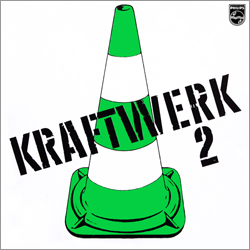
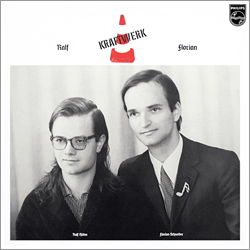






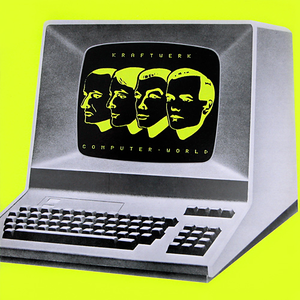
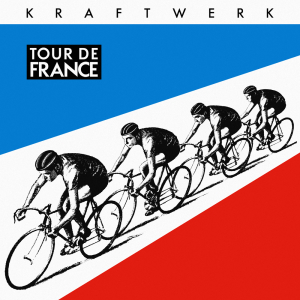
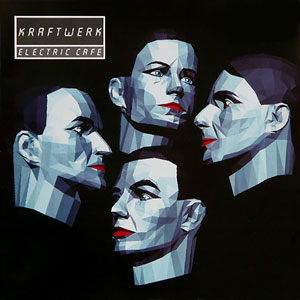


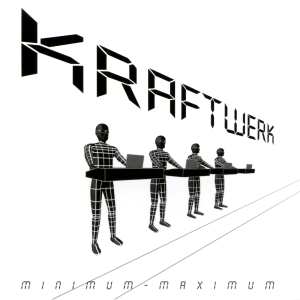

No comments:
Post a Comment